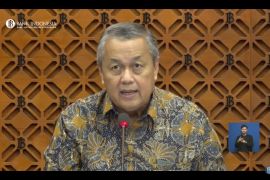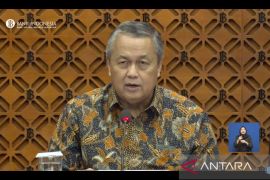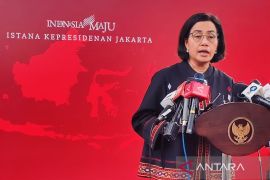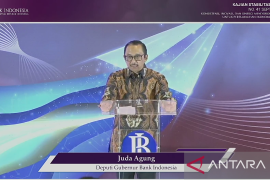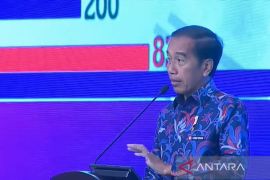"Bank Indonesia`s Board of Governors, at their meeting on October 8, 2013, also decided to maintain the deposit facility rate at 5.50 percent and the lending facility rate at 7.25 percent," Bank Indonesia Governor Agus D W Martowardojo said during a press conference here on Tuesday.
Agus added that the central bank will keep abreast of global and national economic developments and optimize the mixture of monetary and macro-prudential policies to ensure that inflationary pressure will remain manageable, the rupiah`s exchange rate will be stable, and the current account deficit will decline to a sustainable level.
"Bank Indonesia will also keep strengthening its coordination with the government, particularly in keeping the inflation rate and the current account deficit in check," he said.
Bank Indonesia is convinced that the measures and its previous policies will help the current account deficit move to a healthier level and the inflation rate come closer to the range of 4.5�1 percent for 2014, he said.
"Bank Indonesia has noted that the global economy tends to grow at a slow pace amid high uncertainty (over global economy). The economies of developed countries, such as the United States, Europe and Japan, are still not strong, though they began showing signs of improvement," he said.
Meanwhile, the risk of low economic growth, poor performance of current accounts, and a weakening exchange rate have cast a shadow on the developing countries` economies, while at the same time the prices of commodities, except oil, continue to drop, he noted.
In the financial market, a number of risks are related to the postponement of the Fed`s financial stimulus reduction, debate on debt ceiling and the US government shutdown, he said.
"Overall, in terms of trade, global economic developments have put pressure on the export performance of developing countries, including Indonesia," he added.
From the financial point of view, the developments will have a short-term impact on the inflow of non-resident funds to the regional stock and bond exchanges and the strengthening of Asian currencies, he said.
Reporting by Citro Atmoko
(S012/INE)
Editor: Suryanto
Copyright © ANTARA 2013

